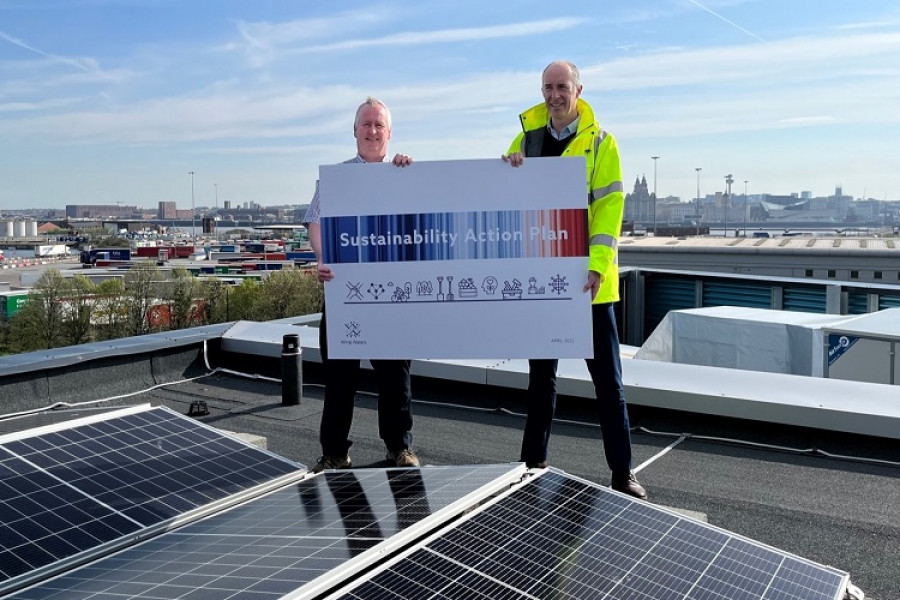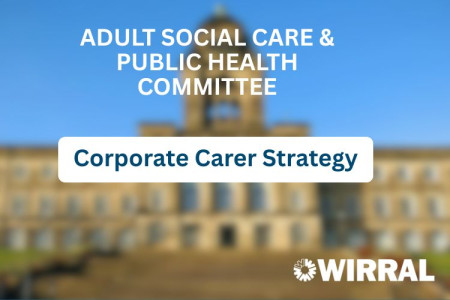Earth Day ‘action plan’ spotlights Wirral Waters’ green credentials
The plan seeks to tackle climate emergency head on and reflects the extraordinary scale of the ‘code red’ transformation that is required, as set out at COP 26 and in more recent announcements by the United Nations IPCC. It also incorporates the lifestyle changes that have been triggered by the global Covid-19 pandemic.
The Wirral Waters Sustainability Action Plan expands on the United Nation’s (UN) Sustainable Development Goals and combines them with Wirral Waters’ Vision Statement Goals, to create five key themes, which are being delivered through the Plan.
Through collaborative working, the Plan will ensure that sustainability and the environment continue to be embedded into each part of the development with the aim that Wirral Waters can fulfil its potential as one of the most sustainable regeneration projects in the UK.
The ten step change actions translate into specific projects developed through collaboration with national, regional and local partners. Continued collaboration with the COOL Wirral Partnership, Energy Projects Plus, Wirral Met College, the Centre for Alternative Technology (CAT), University Partners, the UTS Foundation, ReciproCity, LettUs Grow, Farm Urban, Cycling UK, the Mersey Forest and Forestry Commission, Merseyside Recycling and Waste Authority, and the Liverpool City Region Combined Authority is key to delivering these projects.
The Ten Step Change Actions in the Wirral Waters Sustainability Plan are: -
- Sustainability Action Hub – a ‘basecamp’ for collaboration and a shared hub with indoor and outdoor facilities where partners and the community can create, innovate, learn and inspire.
- Smart Movement and Connectivity – a commitment to connect communities and deliver sustainable transport solutions, such as better cycling and car share clubs as well as charging hubs.
- Greenways and Blueways – high quality pathways and cycleways connecting key public transport hubs.
- Resilient City Greening and Rewilding – large-scale urban tree planting and reimagining green spaces to connect ecological habitats.
- Local Pop Up Parks and Green Hands Teams – innovative pocket parks and inclusive park and street management which promote healthy living and community cohesion.
- Food for Thought – food growing projects which promote health and nutrition, including community allotments and shared gardens which create links between local shops, foodbanks and restaurants.
- Healthy Body, Healthy Mind – creating active healthy neighbourhoods with accessible outdoor gyms for improved community health and wellbeing.
- Upcycling Yards and Supply Lines – innovative recycling systems which remove barriers and promote the transition to circular economies, upcycling and the reuse of materials in the community.
- Sustainable Construction Skills and Demonstrations Projects – a shared venue to test, share and learn about sustainable construction and building including retrofitting, upcycling and reducing the use of plastics.
- Energy Innovations – low and zero carbon energy centres alongside innovative buildings which are built with highly performing, energy efficient fabrics and infrastructure.
Collective activity being delivered as part of the Wirral Waters Sustainability Action Plan will be benchmarked against existing national award schemes to ensure they strive to deliver to national and international standards.
Richard Mawdsley, Peel L&P’s Director of Development for Wirral Waters, said: “This is a collective plan of action, not of pledges.
“Wirral Waters has sought to be a sustainable exemplar from day one. Those sustainability commitments – that we and partners have been delivering on at Wirral Waters – are good for people, place, the economy and for the environment. Delivery of a sustainable place involves a long-term view and ‘big picture’ thinking with genuine collaboration between the public, private, 3rd sector and community groups. We all have a role to play. The focus needs to be on the delivery of those achievable steps through which significant change can be achieved.”




